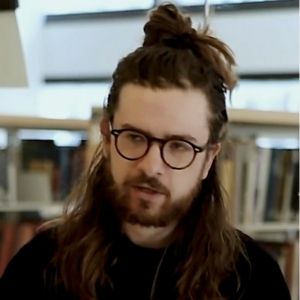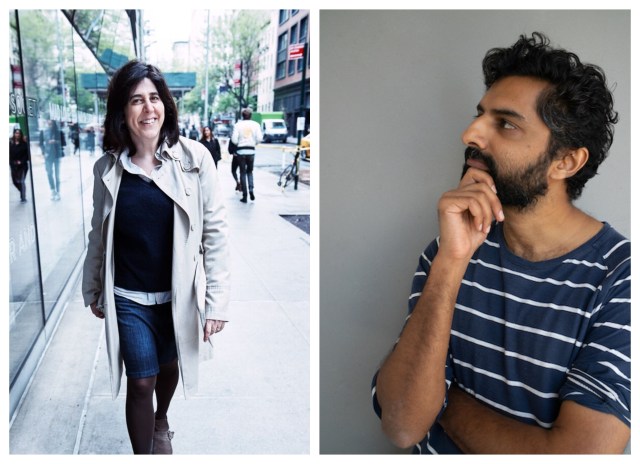Meet NSSR’s Fall 2020 MA Project Grants and Dean’s Conference Fund Award Recipients
As part of a commitment to socially engaged and meaningful research, the NSSR Dean’s Office supports a range of student-organized projects and conferences each year. Even amid a pandemic, NSSR students have envisioned incredibly creative, intellectually rigorous, and community-minded projects and conferences. Read on for more about the Fall 2020 recipients of our MA Project Grants and the Dean’s Conference Fund.
MA Project Grants
NSSR launched the MA Project Grant program in 2016 to improve the research environment and academic life for master’s students. Every semester, student join together to create and launch projects across disciplines that address pressing contemporary questions while also building lasting community at the school.
The Fall 2020 recipients of the MA Project Grants are:

An NSSR-Parsons collaboration, Disaster Mag will focus on unemployment in its second issue through 15 essays and various artwork.
Alexa Mauzy-Lewis (Creative Publishing and Critical Journalism)

Future Subject Matter: Selected Texts of Kato K Trieu
The recent passing of Kato K Trieu (MA Liberal Studies ’20) left his peers with a body of work to study, publish and disseminate. Future Subject Matter will collect Kato’s work in a book-bound copy, and cover the themes of gender and sexuality, trans theory, mind and embodiment, science and technology studies, and comparative literature.
Leo Zausen (Liberal Studies)

Critical Race Theory Group
This reading group will help Sociology students link their research and knowledge into critical perspectives on race, discuss elements of race at different times and locations in history, and analyze how theorists and scholars comment on issues of race.
Melisa Rousseau (Sociology)

Anthropology & Design Exhibition (ADX) Student Working Group
This group of Anthropology students — who have either a background in design and/or an interest in exploring the
fertile intersection of anthropology and design both theoretically and methodologically — meets weekly to develop programming around an inaugural conference in April 2021 (see more below).
Oscar Fossum, Lilah Doris, Leila Lin, Elif Geçyatan, Clemente de Althaus (Anthropology)

Gestalt-themed Mini Speaker Series and Events
Max Wertheimer brought Gestalt psychology to The New School, and the university became a center of Gestalt theory within the US. This project will host interdisciplinary events with speakers working in the Gestalt tradition.
Hong B. Nguyen and Mariah Woodruff (Psychology), Leonhard Victor Sedlmayer (Philosophy)

Unbound Podcast
This podcast series will highlight the voices and work of people with underrepresented identities in philosophy and academia —
specifically New School PhD students and faculty whose research focuses on diversity, feminism, gender studies, and fields of study that are often not categorized as belonging to the traditional Western canon.
Giuseppe Vicinanza, K. Eskins, Madison Gamba, Emre Turkolmez (Philosophy);
Olivea Frischer (Parsons School of Design); Andres Volkov (College of Performing Arts)

LGBT COVID-19 Ethnography & Mental Health Impacts
An ethnographic and psychological survey investigating the social behavior, community resilience, and mental health of the LGBT community in New York City in comparison with cishet residents. With the effects of the COVID-19 in mind, such a project will demonstrate the impact of removing physical community spaces on risk behavior and loneliness.
Julien Lenaz (Psychology)
Dean’s Conference Fund
Often times trans- and interdisciplinary, NSSR student-run conferences blur and contest traditional lines inside and outside of academia and are one of the most productive sites for intellectual growth at the school. They are also where students begin to make their mark as active scholars in their field.
In 2021, the Dean’s Conference Fund will support the following NSSR student-run conferences:

Future Ontologies: Afrofuturism and Indigenous TEK
In response to the worldwide need to elevate discourses that contribute to a decolonial turn in academia and culture in general, the Liberal Studies Student Association is planning a conference that
centers the voices of marginalized communities, specifically BIPOC. Taking Afrofuturism as a starting point, this conference will explore its history and contemporary manifestations in order to start a conversation with indigenous traditional ecological knowledge (TEK).
Tentative date:
First week of April 2021
Silvana Alvarez Basto, Nicholas Travaglini, José Luna, Katrina Schonheyder, Walter Argueta Ramírez (Liberal Studies)

Animalhouse: Animals and Their Environs
The relationship between animals and their environs has become one of the paramount political concerns of our time. While a particular urgency motivates current discussions of animate life and its
habitat, examining this relationship has yielded significant philosophical development throughout the
20th century. This conference will question if and how philosophy’s treatment of animals and their environs can help us make sense of our current situation.
Tentative date:
April 1-2, 2021
Aaron Neber, Weiouqing Chen, Kyle O’Dowd (Philosophy)

Anthropology & Design Exhibition (ADX)
ADX presents NSSR and Parsons grad student works at the intersection of Anthropology and Design.
Topics may include applied anthropology, community-oriented design, design research, material studies, critical design and creative
technologies. ADX will include three parts: workshops; a VR exhibition with live discussions; and a website portfolio with recordings of the main event.
Tentative dates:
April 2021: Virtual exhibition of student works
May 2021: An edited recording of the exhibition, and an analysis of Anthropology and Design based on data from attendees and their projects
Oscar Fossum, Lilah Doris, Leila Lin, Elif Geçyatan, Clemente de Althaus (Anthropology)

Decolonizing Birth and Mental Health
This conference focuses on the enduring impact of colonization on birth practices in the United States. Topics include the medicalization of pregnancy and birth; erasure of indigenous practices and
tribal health care practices, ethnoracial disparities in maternal mental health and mortality, anti-racist
psychological and medical models of care, the importance of amplifying BIPOC birth practitioners as
doula activists,
LGBTQ + inclusive reproductive healthcare, and more.
Tentative date:
October 2021
Koret Munguldar, Hillary Litwin, Deniz Kocas, Ellen Yom, Lindsey Myers (Psychology)

Human Considerations: rethinking space habitats
Address approaches to thinking and designing space habitats, and sketch founding ideals for a more just and equitable approach to exploring outer space. From the architectural and engineering questions of livability and survivability, to the artistic and sociological considerations of enjoyability, the conference will host a series of speakers and two panels in an attempt to re-
imagine the scope of what is at stake when we think about leaving earth.
Tentative date:
April 24-25, 2021
Weston Finfer (Liberal Studies)







